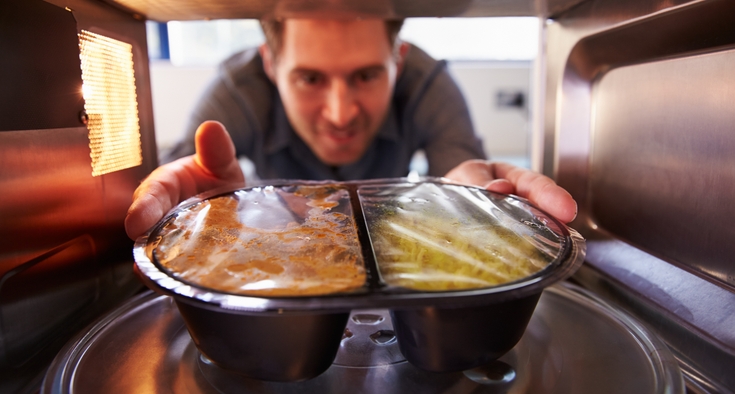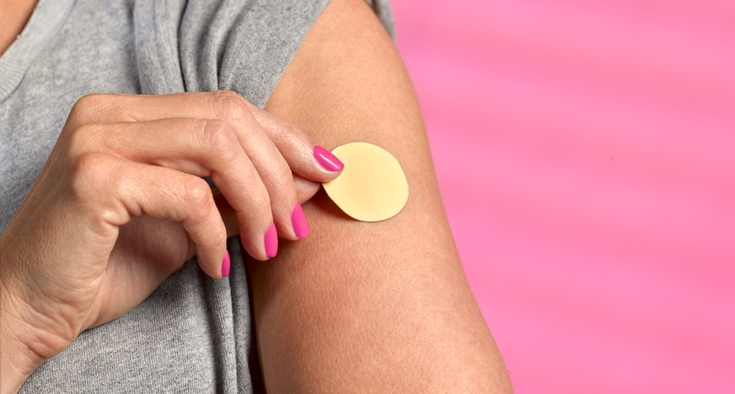Most of us have had instant ramen at some point in our lives, whether it was the only meal we ate in college or a quick fix on a night we just didn’t feel like making dinner. But can you eat ramen every day and still maintain your health?
With anywhere from 900 to 1,500 mg of sodium a serving, instant noodles we buy at the grocery store are notorious salt bombs. They’re also not particularly filling. But for some people, it’s one of the only meals that’s easily accessible and cheap.
Candace Campbell, a registered dietitian at CoreLife Novant Health, sat down with us to discuss what those who eat ramen regularly should know about incorporating it into a well-rounded diet.
Comprehensive care to support your weight-loss journey.
What’s in a packet of ramen?
Instant ramen is just noodles (that are fried to partially cook and dehydrate them) and the seasoning packet. The seasoning packet is made up of dehydrated spices and a lot of sodium (salt). That sodium helps preserve the spices for a longer time. Ramen contains anywhere from 900 to 1650 mg of sodium, and the high amount of sodium is the nutritional property I want people to be aware of.
It can account for over half of your daily intake, which we recommend a maximum of 2,300 mg a day. It’s not good or bad that this ramen is a high-sodium product; it just is. But we should be aware of it.
Why am I so hungry after eating my cup of ramen?
Ramen itself consists of noodles, which are mostly carbohydrates. There's a little bit of protein and fiber in there, but not a whole lot. Carbohydrates are metabolized the quickest of the nutrients. And so when we eat them, they are metabolized very quickly and move through the GI tract quickly. This is why we get that hungry feeling just a couple of hours later.
If I eat ramen for lunch, but healthy meals for the rest of the day, do I need to worry about the ramen since it was just one “bad” meal?
If you haven’t hit your sodium limit for the day, and you really want ramen, that’s fine. We often meet our daily sodium intake by eating processed foods. I also don’t assign moralistic value to food. I avoid language like “good,” “bad,” “pass,” and “cheat.” It’s just food, and talking about one meal as superior to another can be damaging in a lot of ways. Ramen can fit into a healthy diet, and it doesn’t need to be criticized.
What roles do poverty and food deserts play in shaping eating habits around ultra-processed foods like ramen?
People eat what’s available to them. In food deserts and for low-income families, the local grocery store may be a Dollar Store or the food pantry you go to, and this can really limit your access to fresh fruits and vegetables, while your access to foods like ramen is abundant. However, this doesn’t mean you can’t have a well-balanced diet – you just have to get creative about it.
If ramen or other processed foods are the only options I have access to, how would you advise me to maximize their nutritional value?
We want to look for easy options for sources of protein and vegetables to add to ramen. In areas where grocery stores are scarce or in low-income families, easy options are tuna or chicken packs, and you may be able to find tofu.
You can use frozen or canned vegetables, and consider making a dish like ramen with bone broth instead of water. That can help increase protein and overall nutrient value.
What resources are available to people on a community level who may be struggling to either find fresh food or know how to prepare it?
Historically, people on food stamps (SNAP) have been able to get help paying for groceries. Cuts to that program may limit aid for many families. But the MyPlate site, run by the U.S. Department of Agriculture, offers dozens of healthy, easy-to-prepare meals.
Resources like that often get lost in the mix, but knowledge can be power, especially when we’re not working with a lot and want to maximize the nutritional benefits of the food we can access.
Why do you think people who can afford healthier food still gravitate toward processed foods in general? Is it time, taste, culture, nostalgia or something else?
People gravitate toward foods for a multitude of reasons. It’s important that we enjoy the foods we eat and are able to fit them into a healthy lifestyle.
In regard to fast food specifically, there’s the lingering perception that it’s cheap. The reality is that the cost of one meal at Chick-fil-A could buy a few easy meals at Lidl or Walmart if we think about how to spend it.
What should we know about how eating ramen frequently over a long period of time impacts our health?
The high levels of sodium can increase your risk for heart disease. That being said, we want to make sure that if we’re having ramen at lunch, we’re having a meal at dinner time that is not processed. Ideally it’s whole-foods focused and incorporates multiple food groups. It’s not all or nothing.
If I’m trying to create a more balanced diet that includes ramen or other ultra-processed foods, where’s a good place to start?
Balance is key. The No. 1 thing I tell people is to add more fruits and vegetables to their diet, whether it's frozen, canned or fresh. Generally, adults in the U.S. don't get enough fiber, and we don't meet our vitamin and mineral goals for the day. Fruits and vegetables give us those things.
If you’re on a budget, there are also ways to ensure you’re getting the most nutritional value out of what you buy. Buy canned fruits in juice, not syrup. Opt for lean cuts of meat and drain the grease off. Choose low-sodium canned foods or rinse off the extra sodium before preparing your food.
What are three things we can all do today if we’re trying to eat better, but feeling overwhelmed by the cost or time it takes to cook?
First, I recommend keeping “emergency meals” on hand – and I do it myself. Think of foods that thaw fast and are easy to prepare, like chicken nuggets, chicken sausages, rice cups and frozen shrimp. You can also keep things like salad kits or quinoa and rice packets on hand as well.
These are likely to be more friendly for your diet and your budget than fast food.
I’d also recommend seeing your local dietitian to talk more about how to align your lifestyle with your diet. Bottom line: Be mindful of ultra-processed food consumption without feeling the need to restrict foods like ramen from your diet altogether. Moderation is the key.













